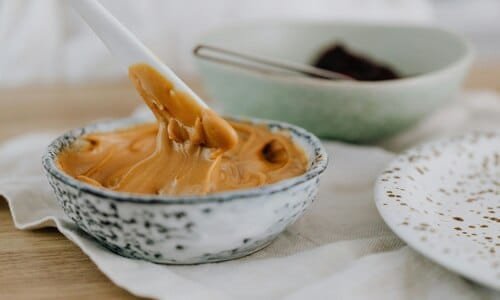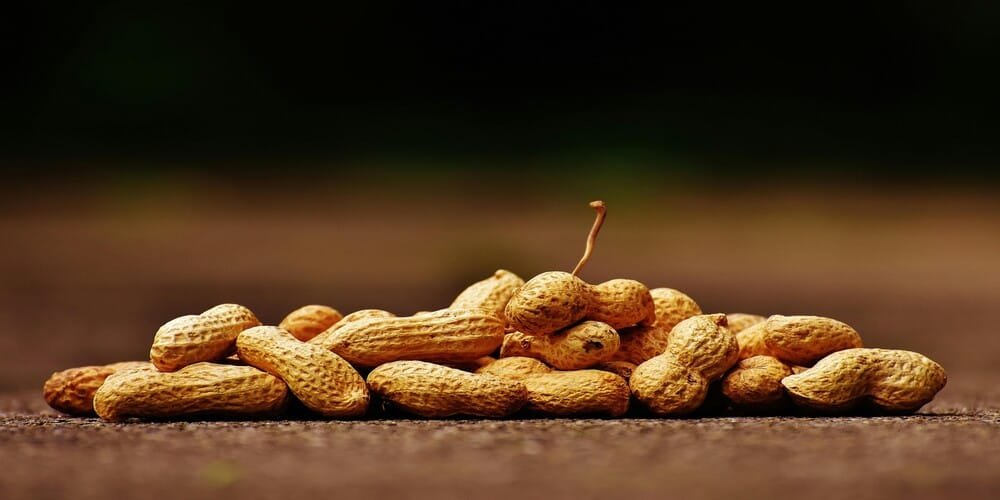Aashu’s Curiosuty
Aashu has an undeniable affection for peanuts. Since his childhood, he has always loved to eat boiled peanuts after dinner.
His mother told him that he is not the only one in the family to have such a bond to peanuts, but the whole lineage of his father has enjoyed eating this food.
Aashu’s grandmother had once told him that they couldn’t afford dry fruits like almonds, cashews and pistachios so they eat peanuts. But she also informed him that peanuts are not as nutritious as other nuts are.
Aashu needs to know whether his grandmother was right or wrong. So, he is again searching for information on Know Ur Diet about the health benefits of Peanuts:
What are Peanuts?
One of the big surprises for many of us will be that peanuts are not part of the nuts family but they are legumes like lentils, green peas and soybeans. Peanut is also called groundnut because, unlike other plants, peanut fruit develops under the ground.
Peanuts are not native to India but as per fossil records, the peanut plant was first grown on a mass scale in South American countries probably in Brazil or Peru. Even, some extractions have found peanut-shaped pottery decorated with peanuts.
Read more about: Nuts & Seeds
Fun Fact about Peanuts
“Goober Peas” a song sung by Southerners during the latter part of the American Civil War is about the living conditions they were facing in the conflict. Peanuts are also called Goober Peas in Southern America as they relied highly on peanuts during the Civil War as no other food was available for troops.
Peanuts Nutrition Content
Here is the list of Nutritional content in 100gm of raw Peanut:
| S.No. | Nutrients | Quantity |
|---|---|---|
| 1 | Calories | 567 kcal |
| 2 | Fats | 49.2g |
| 3 | Proteins | 25.8g |
| 4 | Carbohydrates | 16.1g |
| 5 | Fiber | 8.5g |
| 6 | Sugar | 4.72g |
| 7 | Potassium | 705mg |
| 8 | Calcium | 92mg |
| 9 | Vitamin E | 8.33mg |
| 10 | Vitamin B | 13mg |
Health Benefits of Peanuts
If you think that peanuts are not from the nuts family so consuming them might have no health benefits, you need to think twice. The following are some health benefits of peanuts:
Good for Heart
One of the reasons why doctors advise heart patients to add peanuts to their diet is because of monounsaturated and polyunsaturated fats. These fats can lower the bad cholesterol level in your body and prevent heart disease.
Another thing that makes peanuts good for the heart is the presence of antioxidants such as arginine that is associated with improving the flow of blood through arteries.
Lowers Blood Sugar
If you are struggling with type-2 diabetes and need to add foods that can help in reducing blood sugar then Peanuts are a good option. Studies have shown that Peanuts have a low glycemic index which means they have negligible effect on blood sugar levels.
More than that, eating peanuts can improve the movement of insulin in your body. This can have a positive effect on the blood cells in synthesising glucose for energy.
Improves Bone Health
With aging most of us face bone-related problems like Arthritis. Thanks to the high content of minerals like Phosphorus and Manganese, Peanuts are effective for healthy bones.
Even the small content of Calcium, Zinc & Magnesium also plays a vital role in preventing bone-related problems. These minerals are also essential for fast recovery from fracture.
Anti-Cancer Properties
Due to the presence of compounds like resveratrol and phytosterol, Peanuts have anti-cancer properties. Studies have found that consumption of Peanuts can reduce the risk of colorectal, lung and pancreatic cancers.
But at the same time, studies have shown Peanuts can also have cancer-spreading properties. The contaminated Peanuts are associated with the rise of Aflatoxins, a toxin that can increase the risk of liver cancer.
Strengthens Brain Functioning
You might have listened to your grandparents saying Peanuts make your brain sharp. The presence of nutrients like Vitamin B can be effective against cognitive decline and Alzheimer’s.
Also, Peanuts have Resveratrol, a natural antioxidant that strengthens the brain cells. They also increase the flow of blood in the brain. Polyphenols, another compound that is considered a mood booster are also present in Peanuts.
Aids Skin Care
Looks matter and only because of this, we should include Peanuts in our diet for good skin care. Vitamin E is a major component in many skin care products, Peanuts are a natural source of this nutrient.
Fatty acids in Peanuts are needed to maintain hydration in the skin tissue. Also, Zinc in Peanuts is a natural catalyst of collagen that is essential for youthful skin.
Boosts Eye Sight
Having specs at an early age is now a common problem. We spend a lot of time in front of screens due to which we are exposed to many eye diseases. Peanuts are rich in Omega-3 fatty acids that can improve your vision.
More of it, Vitamin E & Zinc are other nutrients that are associated with lowering the risk of muscular degeneration due to old age. They can also prevent the occurrence of cataracts by protecting the eye membrane from free radicals.
Along with all these health benefits Peanuts can also be helpful in weight loss.
Peanuts for Weight Loss
When we talk about weight loss, we need to replace carb intake with protein. Peanuts are a rich source of protein that is considered crucial for muscle development and weight management.
Also, monounsaturated fatty acids and polyunsaturated fatty acids present in Peanuts are associated with controlling obesity. Studies have shown that healthy fats improve the synthesis of stored fats.
Peanuts also carry a lot of fibre due to which they can be consumed as healthy snacks during hunger pranks. Fibre has the ability to make you feel fuller for a longer period.

Different uses of Peanuts in Meal
Following are some ways in which you can include Peanuts in your diet:
Raw Peanut
You can consume peanuts in raw form without adding any more calories to it. Also, raw peanuts may provide 100% of the nutritional value as no heat is applied to them that can destroy their content.
Roasted Peanuts
If you want to consume peanuts but in a way that doesn’t harm your calorie intake then you should opt for roasted Peanuts. When you roast peanuts, it alters their flavour and makes them more desirable than raw form.
Boiled Peanuts
You can also have boiled peanuts in your meal. Due to the boiling process, peanuts become 4 times more antioxidant-rich than raw or roasted peanuts. Also, boiling eliminates the proteins that can trigger allergies.
Soaked Peanuts
While roasted peanuts are preferred for snacking, soaked peanuts are ideal for a healthy breakfast. Taking them in the early morning can help you to avoid high-calorie foods. Overnight soaking of Peanuts also improves digestion and can boost metabolism.
Peanut Butter
An ideal substitute for dairy butter, you can add Peanut butter to your breakfast or snacks. Regular gym-goers include Peanut butter to boost muscle development. But you should take it in moderation as it is high in calories and sodium.
“Its highest nutrient is fat at 55 grams per 100 grams. It’s also an excellent source of vitamin B3 at 89 percent of the recommended daily value, a vitamin that is important in metabolism and reactions in DNA repair.”
– Blanca Garcia, R.D.N., nutrition specialist of MIDSS
Groundnut oil
You can replace other unhealthy edible oils like palm oil with groundnut oil. It is considered beneficial for heart health. Vitamin E in groundnut oil works as an antioxidant against free radicals and lowers the risk of chronic diseases.
Peanut Allergy & How to Prevent it
Food Allergies are a common health issue among adults and they can also be fatal for life. Peanut allergy symptoms can vary from person to person ranging from skin rashes, sneezing, diarrhoea, vomiting, stomach pain to even cardiac arrest.
What causes Peanut allergy is still unclear but certain studies have shown that genetic factors play a major role. Also, when children are given peanuts at an early age then it can accelerate allergy reactions.
Prevention of Peanut Allergy needs proper planning of meals so that you can avoid any accidental consumption of peanuts. You need to be vigilant at buying processed foods because they may include peanuts during the process.
The inclusion of peanuts in an infant’s diet should be after 6-8 months of birth. If the child has a family history of allergies, then doctor’s advice should be taken.
Conclusion
Aashu is now more aware of the health benefits of peanuts and how they can be consumed in different ways. The nutritional value of peanuts also makes it a good source of many essential nutrients like protein, vitamins and minerals.
Aashu has decided to add peanuts to his diet in different forms like soaked peanuts for breakfast, roasted for snacking and groundnut oil for preparing meals. Although peanut butter calories are high then also, he can also add it as he is a regular gym goer.
Aashu has also informed his mother about how peanuts are effective against heart diseases, gut problems and skin-related issues. He is convinced that although peanuts can be allergic but health benefits overpower the downsides.



